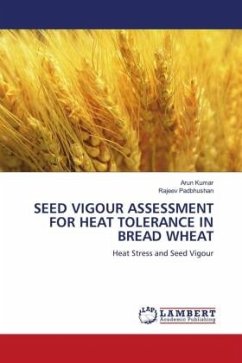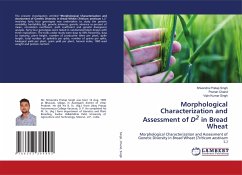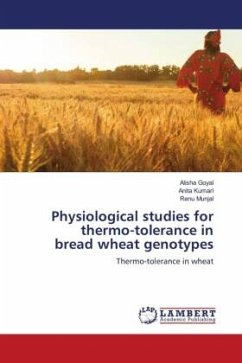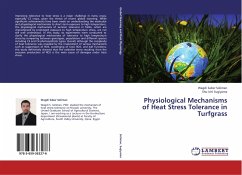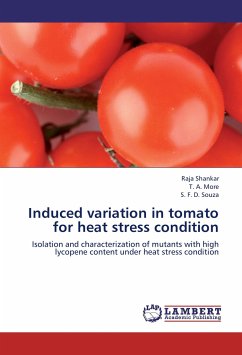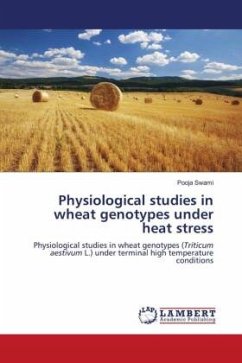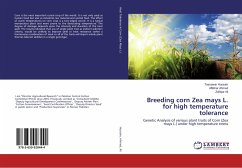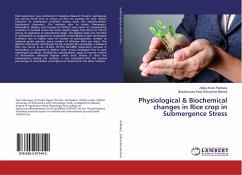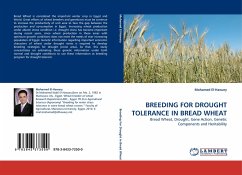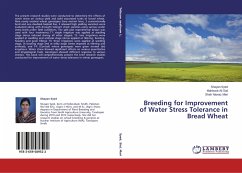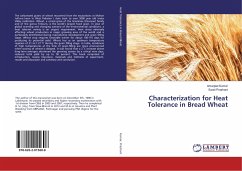
Characterization for Heat Tolerance in Bread Wheat
Versandkostenfrei!
Versandfertig in 6-10 Tagen
46,99 €
inkl. MwSt.

PAYBACK Punkte
23 °P sammeln!
The carbonized grains of wheat recovered from the excavations at Mohan JoDaro (now in West Pakistan ) date back to over 5000 year old Indus Valley civilization .Wheat, a cereal grass of the Graminae (Poaceae) family and of the genus Triticum, is the world's largest food grain. In view of global warming and changing scenario of the environmental conditions, a heat tolerant variety is an urgent requirement. Heat stress adversely affecting wheat production in major growing area of the world and is particularly detrimental during reproductive development and grain filling stage. Wheat crop require...
The carbonized grains of wheat recovered from the excavations at Mohan JoDaro (now in West Pakistan ) date back to over 5000 year old Indus Valley civilization .Wheat, a cereal grass of the Graminae (Poaceae) family and of the genus Triticum, is the world's largest food grain. In view of global warming and changing scenario of the environmental conditions, a heat tolerant variety is an urgent requirement. Heat stress adversely affecting wheat production in major growing area of the world and is particularly detrimental during reproductive development and grain filling stage. Wheat crop requires favorable winter for about 100-110 days for producing its potential yield. Wheat has as an optimum temperature regimen of 21.3±1.27 °C during the grain filling stage. In India, incidences of high temperatures at the time of grain-filling are more pronounced when sowing of wheat is delayed. It was found that a 2 C increase above long-term averages shortened the growing season by a critical nine days, reduced total yield by up to 50 percent. This book comprised of introduction, review liturature, materials and methods of experiment, results and discussion and summary and conclusion.



